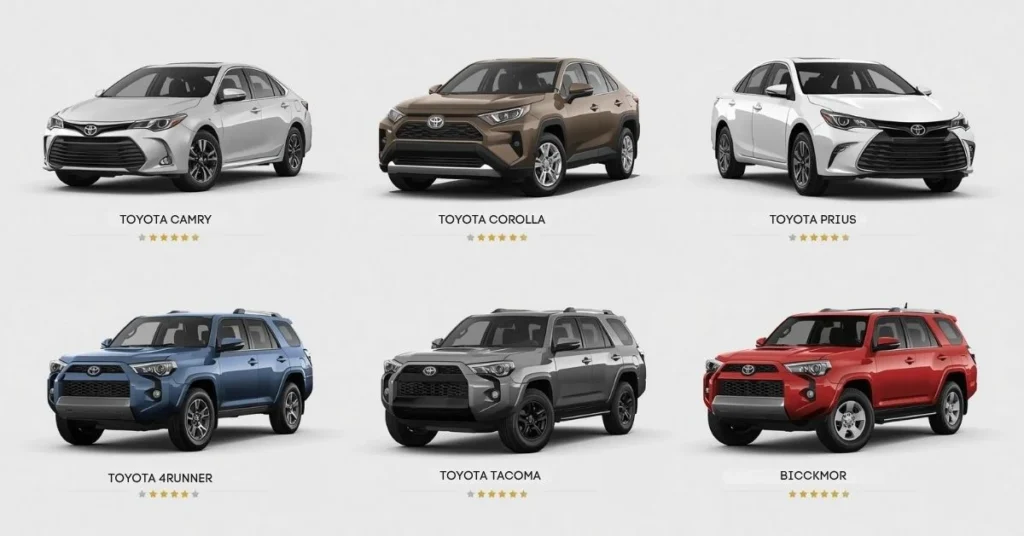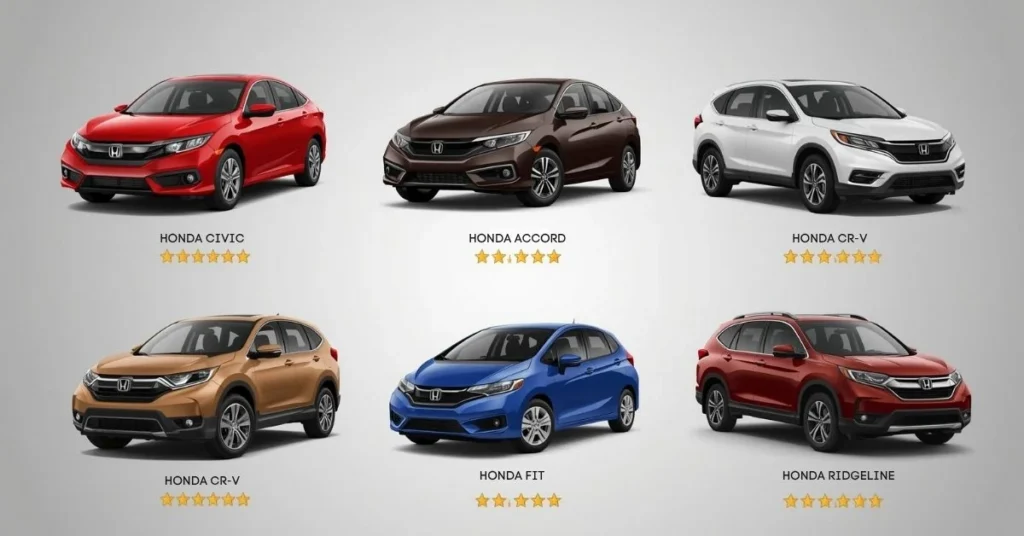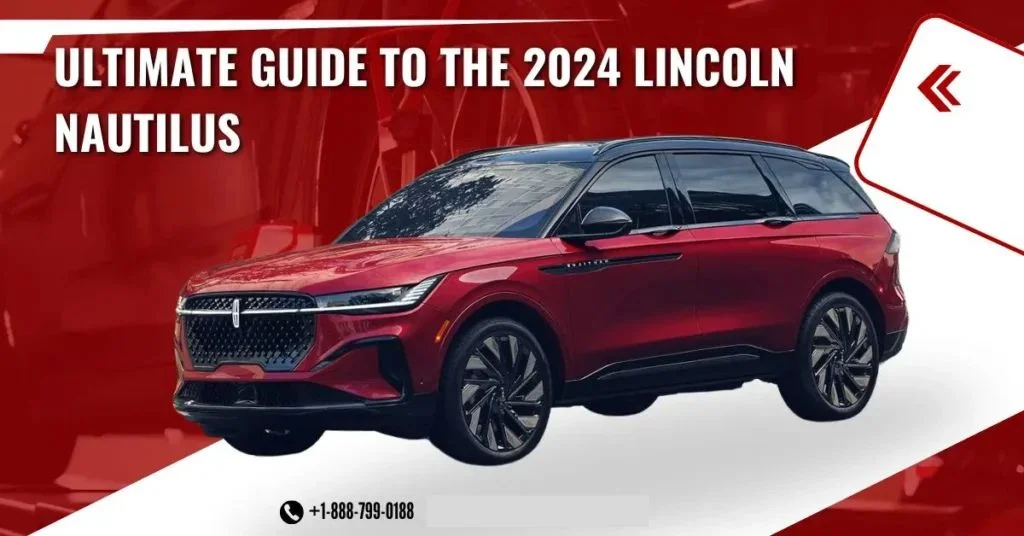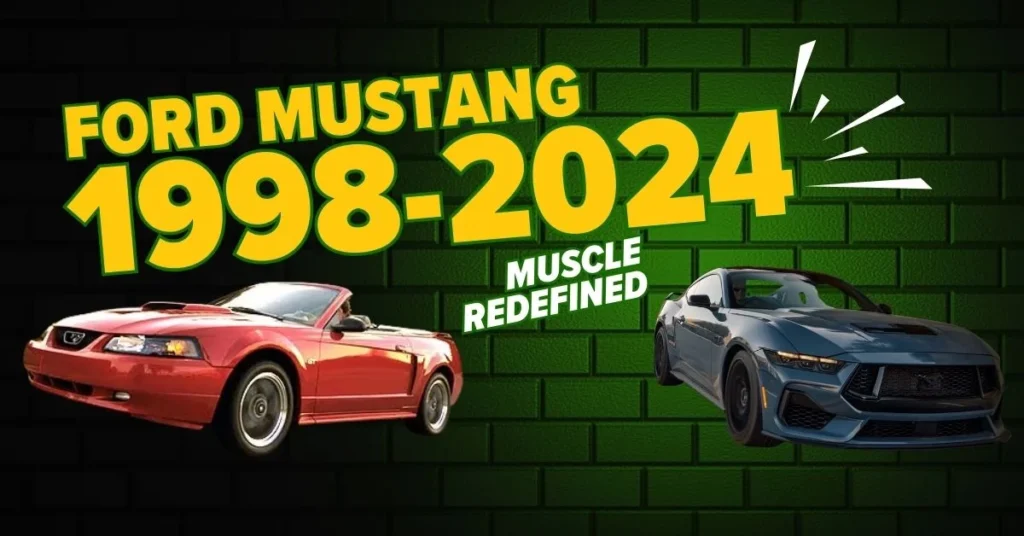Table of Contents
When you’re in the market for a new or used vehicle, reliability is often the most important factor, just like following a regular car maintenance checklist. You want a car that starts every morning, costs little in unexpected repairs, much like choosing the right used engines and holds its value over time. For decades, two Japanese automakers have dominated the conversation around dependability: Toyota and Honda. The debate over Toyota vs Honda reliability is a classic one, with loyal fans on both sides. But which brand truly deserves the crown for building cars that stand the test of time?
This comprehensive comparison will dive deep into what makes these brands so dependable. We’ll explore their brand philosophies, analyze repair data, compare popular models, and examine long-term ownership costs. By the end, you will have a clear picture of each brand’s strengths and be better equipped to decide which one is the right fit for your needs.
The Foundation of Reliability
Understanding why Toyota and Honda consistently top reliability charts starts with their core principles. Their approaches, while similar in their goal of producing quality vehicles, have distinct differences that shape their products.
Multiple independent organizations track vehicle reliability, and both manufacturers consistently perform exceptionally well. Consumer Reports, J.D. Power, and RepairPal provide valuable insights into long-term dependability.
Reliability Metrics and Data
| Rating Organization | Toyota Average Score | Honda Average Score | Industry Average |
| Consumer Reports (2024) | 76/100 | 67/100 | 48/100 |
| J.D. Power VDS (2024) | 164 PP100* | 172 PP100* | 190 PP100* |
| RepairPal Rating | 4.0/5.0 | 4.0/5.0 | 3.5/5.0 |
*PP100 = Problems per 100 vehicles (lower is better)
Here is a general comparison of how the two brands oftsen perform across key reliability metrics:
| Metric | Toyota | Honda |
| Overall Reliability Score | Consistently in the Top 5 | Consistently in the Top 10 |
| Average Annual Repair Cost | ~$441 | ~$428 |
| Engine & Transmission Issues | Extremely Low | Very Low |
| In-Car Electronics Problems | Low | Low to Moderate |
| Long-Term Durability (200k+ miles) | Excellent | Excellent |
It’s important to note that Honda’s slightly higher rate of reported issues in some recent years has been linked to the introduction of new continuously variable transmissions (CVTs) and infotainment systems. However, their core powertrain components remain exceptionally robust.

Toyota: The Pursuit of Continuous Improvement (Kaizen)
Toyota’s manufacturing process is legendary. The “Toyota Production System” (TPS) is studied by companies worldwide and is built on the philosophy of Kaizen, or continuous improvement. This approach empowers every employee on the assembly line to stop production if they spot a defect, ensuring problems are fixed at the source rather than after the fact.
This commitment to quality control results in a conservative approach to engineering. Toyota often favors proven technology over cutting-edge, untested features. This includes refining engines like the Toyota Camry engine, known for lasting hundreds of thousands of miles. They refine existing engines, transmissions, and platforms for years, working out every possible kink. This slow-and-steady evolution means their vehicles are exceptionally durable and predictable.
Key Strengths of Toyota’s Approach:
- Proven Technology: By perfecting existing components rather than rushing to innovate, Toyota minimizes the risk of widespread mechanical or electronic issues.
- Exceptional Quality Control: The Kaizen philosophy ensures that fewer defects make it off the assembly line.
- Focus on Durability: Parts are often over-engineered to withstand years of use, contributing to the brand’s reputation for longevity.
- Simple Maintenance: Toyota vehicles are generally designed for straightforward service and repairs, keeping labor costs down.

Honda: Engineering Excellence and Innovation
Honda’s reputation is built on a foundation of world-class engineering. The company started with motorcycles and built its name on creating efficient, high-revving, and incredibly reliable engines. This spirit of engineering prowess and innovation carries through to its automotive division.
While also focused on reliability, Honda is often more willing to introduce new technologies and take more design risks than Toyota. They are known for their sophisticated engine designs, like VTEC (Variable Valve Timing & Lift Electronic Control), and for pushing the boundaries of performance and fuel efficiency. This can sometimes lead to more complex systems that may require specialized maintenance down the line.
Key Strengths of Honda’s Approach:
- Engine Mastery: Honda is celebrated for building some of the most efficient, durable, and enjoyable engines on the market.
- Innovative Spirit: The brand is often quicker to adopt new technologies related to performance, infotainment, and driver-assist features.
- Engaging Driving Dynamics: Honda vehicles, particularly models like the Civic and Accord, such as the Honda Accord Engine , celebrated for smooth power delivery and efficiency. are often praised for their fun-to-drive nature.
- Fuel Efficiency: Honda has a long history of leading the pack in fuel economy without sacrificing performance.
Common Issues and Problem Areas
Toyota’s Known Concerns
- Older models: Some 2000s-era 4-cylinder engines experienced oil consumption issues
- Frame rust: Certain Tacoma and Tundra trucks from the 2000s had frame corrosion problems
- Airbag recalls: Like many manufacturers, Toyota has participated in Takata airbag recalls
- Transmission issues: Some early CVT models experienced problems, though these are less common than Honda’s transmission issues
Honda’s Historical Challenges
- Transmission failures: V6 models from 1999-2004 had significant automatic transmission problems. Some owners consider whether to go for a rebuilt vs new engine when facing big repair bills.
- Air conditioning systems: Some models experienced premature A/C compressor failures
- Paint quality: Certain Honda models from the 2000s had paint durability issues
- Earth Dreams engines: Some early versions experienced oil dilution problems in cold climates
Model-to-Model Showdown
To get a practical sense of the Toyota vs Honda reliability debate, let’s compare some of their most popular head-to-head models.
Compact Sedan: Toyota Corolla vs. Honda Civic
This is perhaps the most iconic rivalry. Both the Corolla and the Civic are synonymous with affordable, reliable transportation.
- Toyota Corolla: The Corolla is the textbook definition of an automotive appliance. It is built to be as trouble-free as possible. Its powertrains are simple and proven, and its interior features are functional and durable. For a buyer who wants the lowest possible chance of any repair, the Corolla is nearly impossible to beat.
- Honda Civic: The Civic offers a more engaging driving experience and a more stylish design. Its engines are spirited and efficient, and it often comes with more modern tech features. While its long-term reliability is fantastic, its added complexity means there’s a slightly higher statistical probability of a minor issue (like an infotainment glitch) compared to the ultra-conservative Corolla.
For pure, unadulterated, set-it-and-forget-it reliability, the Corolla has a slight edge. For a more engaging and modern package with nearly equal long-term durability, the Civic is a compelling choice.
Midsize Sedan: Toyota Camry vs. Honda Accord
The Camry and Accord have battled for the title of America’s best-selling sedan for decades.
- Toyota Camry: Much like its smaller sibling, the Camry prioritizes comfort, quietness, and bulletproof reliability. It offers a smooth ride and user-friendly controls. Its available V6 engine and hybrid powertrains are known for lasting hundreds of thousands of miles with just routine maintenance.
- Honda Accord: The Accord has long been praised by automotive journalists for its superior handling, upscale interior, and sophisticated engineering. It provides a more premium feel and a more dynamic driving experience than the Camry. Recent models have relied on smaller turbocharged engines and CVTs, which are reliable but represent a newer technology compared to Toyota’s naturally aspirated options.
Both are titans of reliability. The Camry is the safer bet for those who value a soft ride and proven mechanicals. The Accord is for the buyer who wants a more driver-focused experience and is comfortable with more modern powertrain technology.
Compact SUV: Toyota RAV4 vs. Honda CR-V
In the booming compact SUV market, the RAV4 and CR-V are dominant forces.
- Toyota RAV4: The RAV4 translates Toyota’s core values into a practical SUV package. It offers a wide range of trims, including a highly sought-after hybrid model that delivers outstanding fuel economy and proven dependability. Its rugged styling and straightforward functionality appeal to a broad audience.
- Honda CR-V: The CR-V is known for its cavernous and cleverly designed interior, offering class-leading passenger and cargo space. It combines this practicality with a comfortable ride and excellent fuel efficiency. Like the Accord, it uses a smaller turbocharged engine in most trims, which is a departure from Toyota’s larger, naturally aspirated standard engine.
This is another incredibly close matchup. The RAV4’s available hybrid system is a major advantage in terms of both fuel savings and its proven reliability record. Meanwhile, many buyers consider replacing with a reliable Toyota RAV4 engine when aiming for long-term dependability. The CR-V’s interior packaging and practicality are its standout features. Both will provide years of dependable service.
Conclusion
The Toyota vs Honda reliability comparison reveals that both manufacturers deliver exceptional dependability that far exceeds industry standards. Toyota maintains a slight statistical advantage in reliability studies and long-term durability research, while Honda offers compelling alternatives with engaging driving characteristics and competitive reliability.
Your decision should ultimately reflect your personal priorities—whether you value Toyota’s conservative, time-tested approach to maximum reliability or Honda’s more dynamic vehicles that still deliver excellent dependability. Either choice represents a smart investment in reliable transportation that will serve you well for years to come.
Before making your final decision, test drive specific models from both manufacturers, research the reliability history of the particular vehicles you’re considering, and evaluate your local dealer networks. With proper maintenance, either a Toyota or Honda will provide the dependable, long-lasting transportation that has made these brands the gold standard in automotive reliability, especially when backed by proper engine maintenance tips.
Frequently Asked Questions
-
Do Honda or Toyota cars last longer?
Both brands are famous for their longevity, with many models easily reaching 200,000 to 300,000 miles with proper maintenance. Statistically, Toyota often has a slight edge in reaching extreme mileage due to its simpler, proven components.
-
Is Toyota cheaper to maintain than Honda?
Maintenance costs are very similar. According to data from RepairPal, the average annual repair cost for a Honda is $428, while for Toyota it’s $441. These figures are nearly identical and are both well below the industry average, making both brands affordable to own.
-
Which brand has better resale value?
Both Toyota and Honda have outstanding resale value, consistently ranking at the top of the industry. Toyota, particularly its trucks and SUVs like the Tacoma and 4Runner, often holds its value slightly better than any other brand.
-
Has Honda’s reliability gone down in recent years?
Some reports have shown a slight dip in Honda’s rankings due to issues with newer infotainment systems and the rollout of new transmission technologies. However, their core engine and mechanical reliability remain elite, and they still rank among the most dependable brands you can buy.



